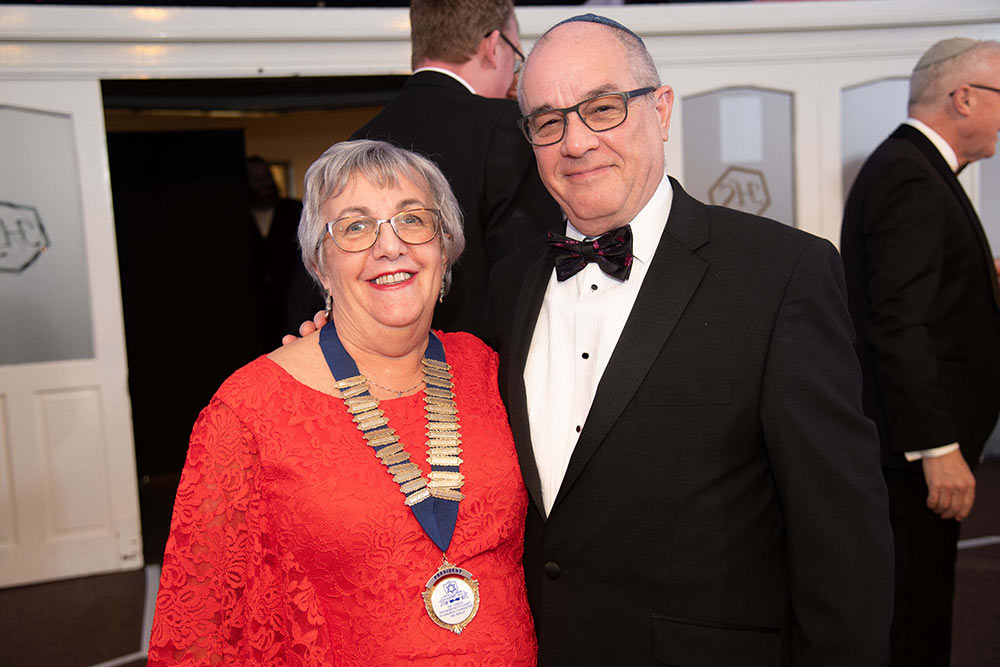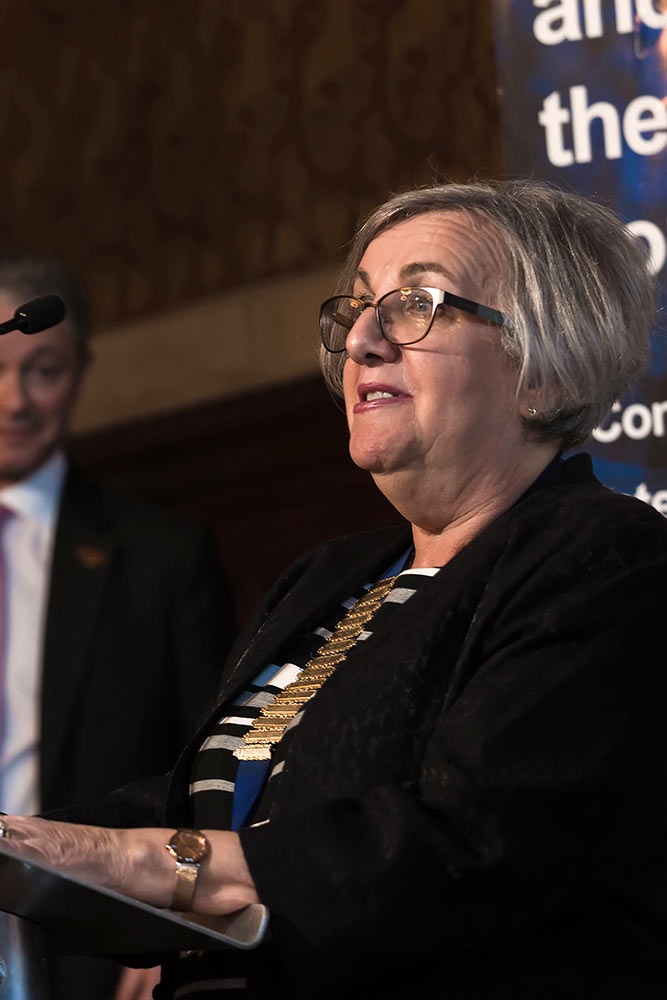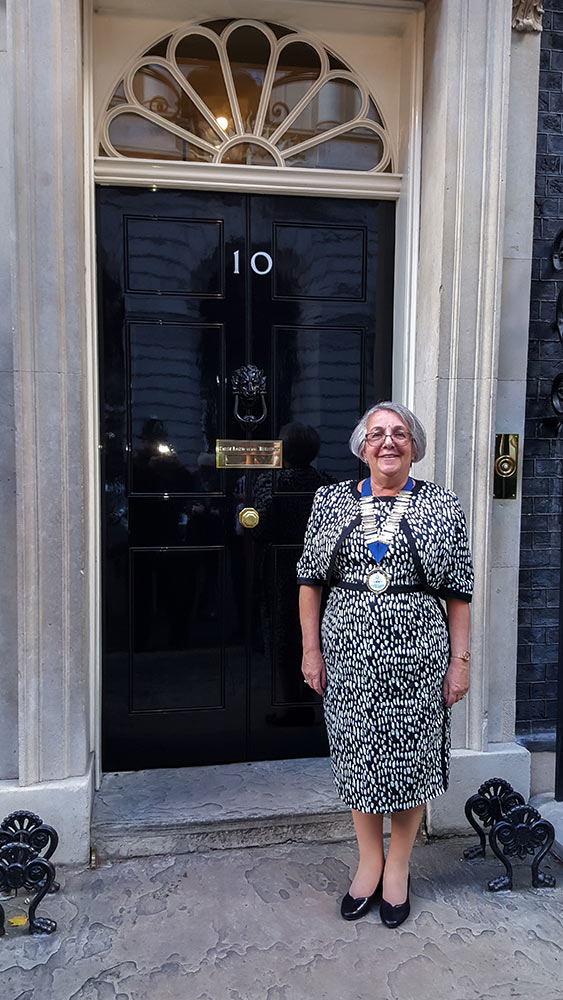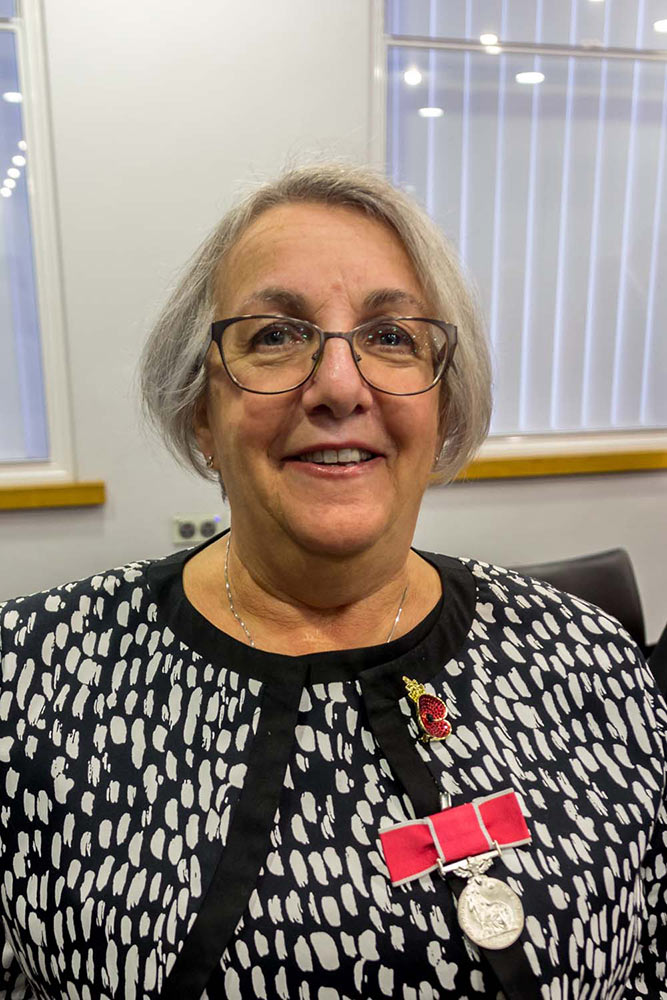Swipe to read
Sharon describes how having a blind father impacted her childhood.
Read Transcript
“He actually went fully blind when I was 11. So, it was a difficult childhood really … It was difficult financially. It was also weird because I would have lots of conversations with him. We would have the radio on a lot instead of the television …
When I was a child, there used to be a home in Lymm. During the summer it was for mothers recuperating after birth and during the winter months it was for children from families that weren’t having a holiday. And I went to Lymm three times. You had to apply and you had to go for an interview. The interview was in a house on Singleton Road. I think it was something to do with the Langdons … They wanted to know about the financial position of my parents, what they did, could they contribute anything. How Jewish they were, how observant.
Was there any kind of stigma applying for a scheme like that?
There wasn’t for me. Whether there was for my parents, they never said.
Sixth form, I stayed as part of the school but I only stayed two terms … I needed to be more responsible in the home. So, I got a job and contributed … It was me deciding that I needed to, not from my parents. My parents were disappointed that I didn’t go into higher education. They understood why but they didn’t force me to carry on … Because I didn’t work very hard, I could have done much better.”
Sharon discussed marrying her husband, Dave, and her ‘assumption’ she would have a ‘Jewish’ home.
Read Transcript
“We got married when we were 21. So, we were going out for five years. And when we got married our friends had bets on how long we could possibly survive. And one said ten years and they all burst out laughing. Because they thought there was no way we could survive ten years together because we argued so much. And from the day we married, we have hardly ever argued … and we’re still going strong nearly 43 years later…
Was it important to date someone Jewish?
It was important to me to meet. Yes … I did go on a date with someone who wasn’t Jewish. But he didn’t understand why I didn’t want a beef burger. He couldn’t understand why I didn’t want it and I didn’t understand why he didn’t understand. I thought, there is going to be too many explanations here … it’s easier. You don’t have to explain. It’s just, it’s a comfort zone.
Was there any pressure from your parents to meet somebody Jewish?
Yes, not ‘you have to meet somebody Jewish’, just ‘he’s not suitable for you Sharon’, or ‘that’s much better Sharon’. ‘He’s ok, he’s a nice decent family.’ My mum knew me too well. If she had said, ‘you’re not going out with him’, red rag to a bull. So, she played it better … I just assumed that I would have a Jewish home and I would live in a Jewish environment, a Jewish culture. You know, I’m through and through Jewish. I’m probably not very observantly Jewish but I’m Jewish 100%. I can’t explain it, it’s something inside I feel. And it’s just me.”
Sharon talks about her hopes for the future of the Jewish Representative Council of Greater Manchester.
Read Transcript
“I was elected to become president in 2014. I succeeded Frank Baigel and I’m the sixth female president in 99 years. It’s our centenary in 2019. We were founded in 1919. The constitution says you can be a president for three years. I have been a president for five years. We changed the constitution, not to suit me at all, but we changed the constitution two years into my presidency and made a new structure. So, I’m not in my final year in my three years under the new structure … I’m hoping that I have changed the rep council a bit. We are making it more representative. More appropriate for the community, more relevant for the time … as a community we have the issues that the mainstream community. I’m probably using the wrong terminology. But the mainstream Jewish community have lots of facilities. We have places like Heathlands, the Fed, the Nicky, King David etc. All with big buildings, fantastic building. But that community is diminishing. The more orthodox, more observant community is growing. In time, that is going to be the larger part of the Jewish community of Greater Manchester. It concerns me that the mainstream Jewish community will have the buildings that are under-occupied, and the more observant part of the community will have the people and not the premises. So, the two sections of the Jewish community at some stage need to speak to each other to find out how we can work together to address that issue …That’s my hope. Will I achieve it, probably not? Will my successor achieve it? Hopefully. ”
Sharon describes her role as a figurehead in the Jewish community and how her sex impacts the job.
Read Transcript
“I went from ordinary member to an executive member to honorary officer to vice president to president. And it was a general evolvement … I never had that in mind at all. I was approached several times to step up on the ladder but didn’t do it because of the time commitment … For me it was impossible to have full-time job, be a wife and be an effective time-consuming officer for the Jewish Representative Council. I thought the community deserved more than I was able to give … I gave up my job at the Alzheimer’s Society so I could devote more time to being president.
… I think I’m the sixth female president. I think the first one was in the 1970s, I think it was Hilda Cohen … I don’t think it’s really anything to shout home about. I think it’s the right thing to do. We represent the community and I don’t think it really matters what sex the president is … Have I encountered problems? Sometimes. But that only sort of if we have an event in an orthodox synagogue, as president, I’m not able to speak to the congregation. However, if it’s a male president they would be able to speak. But that’s part of the religion. Do I like it? No. Do I accept it? Of course.
I don’t see myself as a communal leader. I’m a community worker, I’m a communal worker but not a leader. I think that’s not a term I would use for myself … Other people have said that’s what I am and what they consider me to be. But I consider my role is, what do people want and need, I will do my best to help them achieve that.
My identity? First of all, I’m a wife, mother and grandmother … I’m Jewish. I’m a proud Mancunian. I’m probably a prouder person from Bury but I don’t know what a Bury person is called. That I’m very proud of. I’m active in the community. I would like to think that I’m non-judgemental. I would like to think people think positive of me and that I have been effective throughout all of my communal life.”



